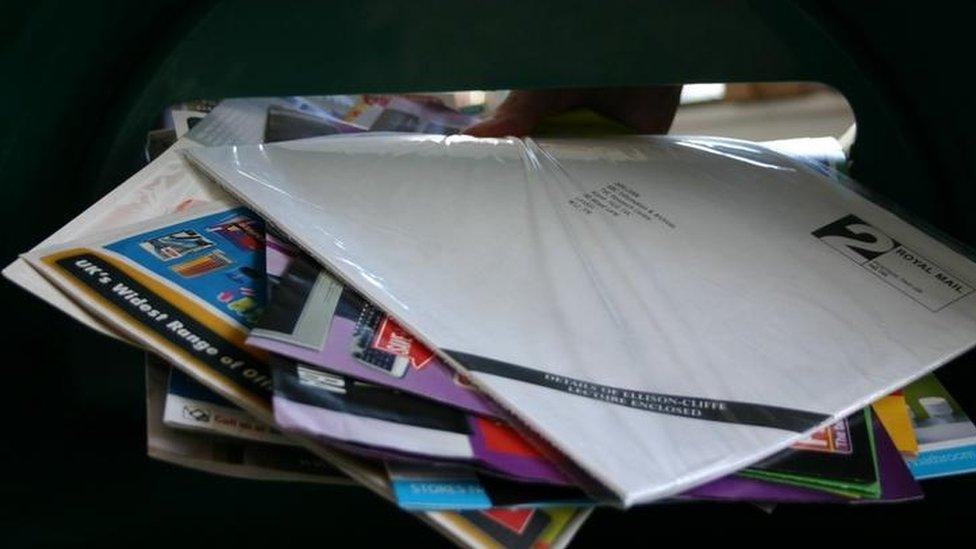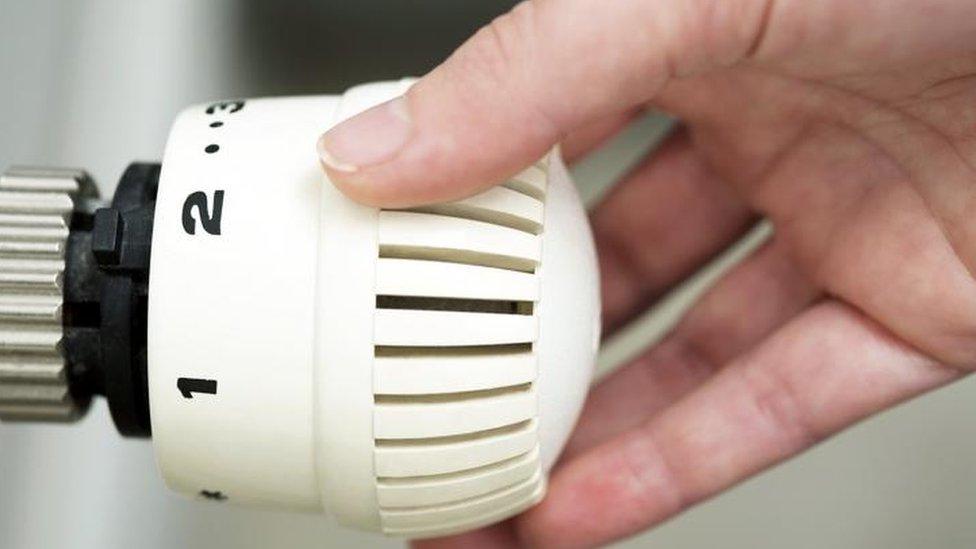Energy report: A spammers' charter?
- Published

We are used to receiving post on anniversaries: birthday cards, wedding anniversary congratulations and some of the big national holidays.
Now householders can expect the postie to deliver a bunch of letters on another anniversary - three years on from sitting on an energy deal.
Following an 18-month investigation, the Competition and Markets Authority (CMA) proposed, external that anyone who has been on a standard tariff - generally the most expensive option - for three years or more will have their details put on a central database.
The other 36 suppliers in the UK energy market can then pitch for their custom, by sending letters making them an offer to switch to a cheaper deal.
No decision has been made yet on whether there should be a limit on the number of letters each company can send. Assume they send only three each and a customer will fairly quickly receive more than 100 letters.
The CMA has described the letters as "targeted mail" offering detail of savings to customers. Others have described them as spam.
Will Hodson, co-founder of collective switching company TheBigDeal.com, said: "The CMA are naive to propose opening a database of customers to energy companies.
"The proposal would take exploited customers out of the pan and into the fire of a thousand cynical sales pitches. People need independent advice from organisations they can trust to get the best deal for them."
Energy UK, which represents the major UK energy firms, said: "Companies treat customers' information with the utmost care. We agree that customers should have the information they need to make an informed choice, but would like people to be able to choose if they get marketing information or not.
"The implementation of these proposals will need to be carefully considered to ensure that customers' personal data and right to privacy remains protected."
Three-year plan

The CMA found that 70% of the domestic customers of the six largest energy firms are on the more expensive default standard variable tariff - that is 18.9 million households - of which the vast majority have been on that tariff for more than three years.
Were these people to switch, they could be £300 on average better off, the CMA found.
So how is the proposal supposed to help them?
Anyone on the same standard tariff for more than three years will be put on a database overseen by energy regulator Ofgem, the CMA has proposed.
There are 37 energy suppliers in the UK. They will be given access to this database in order to contact these people by post, to make them an offer of a better deal.
Customers will be able to opt out from the database at any time.
As many of these customers are inactive in terms or switching, there are question marks over how active they would be in opting out of receiving letters.
The flipside is that some people may be inspired to switch before the three-year stage, rather than face a splurge of letters from energy companies.
The CMA report said: "We recognise that there is a trade-off between the benefits of liberalising channels of engagement and the need to protect customers from excessive and/or misleading marketing."
Policing
Once a customer has switched, they will be taken off the database, so should not be contacted any more. Commentators say this will need to be carefully policed by Ofgem.
The CMA said it had consulted with the Information Commissioner about privacy issues surrounding the database, and it was satisfied with the plans.
This database will be in place until 2020, by which time the CMA believes the sector would have become more competitive.
The authority can impose this plan after consultation and following its final report in June. There is no need for government or regulator agreement, and the first letters are likely to go out in April next year.
Richard Lloyd, executive director of consumer group Which?, said: "Sharing customer data in the hope that the least engaged customers, stuck on the the most expensive tariffs, will switch is a big gamble.
"We will be seeking assurances that this will be done in a tightly controlled way that does not put people's information at risk or result in consumers being bombarded with junk mail, nuisance calls or scams. More needs to be done to improve competition for all consumers, who the CMA admit have been significantly overpaying for their energy."